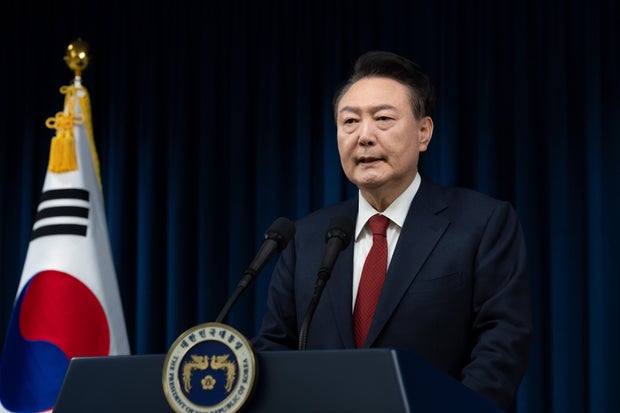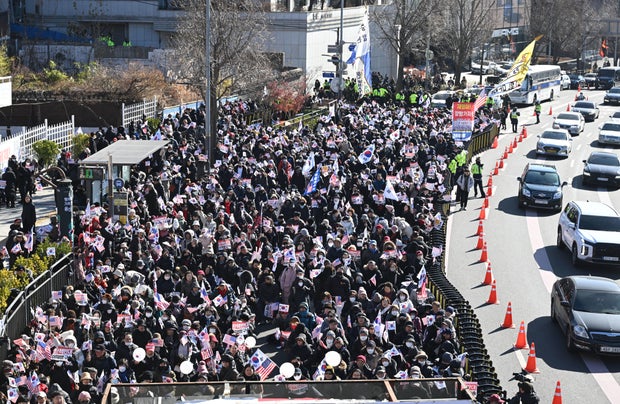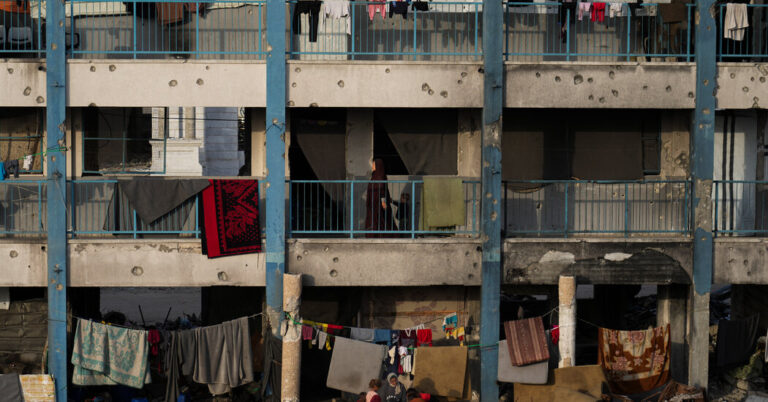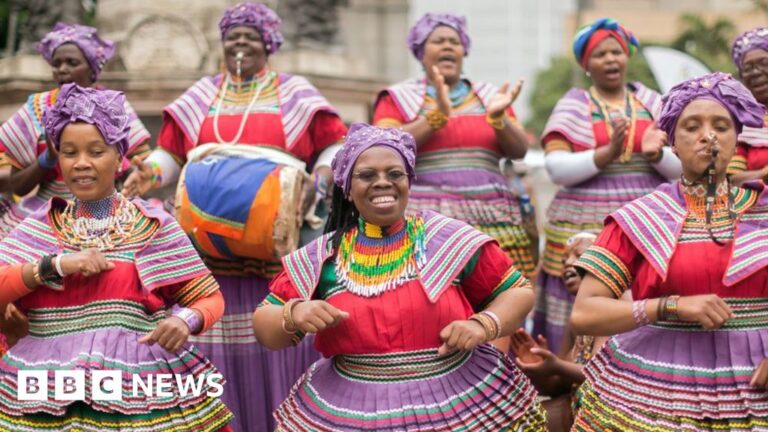The South Korean court issued an arrest warrant for the impeached President Yoon Suk Yeol and searched his office
A South Korean court issued an arrest warrant on Tuesday President Yoon Suk Yeol is impeached and searched his office and residence declaration of short-term martial law.
The country’s Anti-Corruption Agency said it was investigating whether his statement constituted sedition. But experts still say Yoon has little chance of being caught or searched unless he is formally removed from office.
The Seoul Western District Court issued warrants for Yoon’s arrest and to search the presidential office and residence in central Seoul, according to a statement from the High-Level Officials Corruption Investigation Bureau, which is leading the investigation along with police and military authorities.
Under South Korean law, the leader of the rebellion could face the death penalty or life imprisonment if convicted. Yoon enjoys presidential immunity from most criminal prosecutions, but the privilege does not apply to sedition or treason charges.
Yoon’s powers were suspended after the opposition-controlled National Assembly voted to impeach him on December 14 over the imposition of martial law, which led to hundreds of soldiers and police taking to the streets of Seoul.
Getty
Yoon argued that his decree was an act of legitimate governance, calling it a warning to the main liberal opposition Democratic Party, which he called a “monster” and “anti-state forces” that use their legislative majority to impeach senior officials. undermines the government’s budget and claims to be sympathetic to North Korea.
The Constitutional Court must decide whether Yoon should be removed from the presidency or reinstated.
Yoon is likely to ignore the warrants, experts said. He has ignored repeated requests by investigative authorities for questioning, and the president’s security service has blocked attempts to search his office and residence, citing a law that prohibits raids on sites containing state secrets.
Yoon’s lawyer rejected the request for warrants on Monday, arguing that the anti-corruption agency lacked the legal authority to investigate the rebellion charges.
The Anti-Corruption Agency said it had no immediate plans on how to proceed with the warrants.
JUNG YEON-JE/AFP via Getty Images
“Unless Yun voluntarily allows himself to be kept, there is no way to keep him,” said Choi Jin, director of the Seoul-based Presidential Leadership Institute. Should the investigators have a hand-to-hand fight with the security service?
Choi said he will still visit Yoon’s residence to show that investigators are doing their job seriously and fairly.
Park Sung-min, president of Seoul-based political consulting firm MIN Consulting, said the impetus for the arrest warrant was likely an attempt to pressure Yoon to cooperate with investigations.
Former President Park Geun-hye, who was ousted in 2017 after being impeached over a corruption scandal, also refused to meet with prosecutors while in office. He was interrogated by them and arrested after the Constitutional Court removed him from office.
Yoon’s imposition of martial law lasted only six hours, but caused major political turmoil, halting high-level diplomacy and roiling financial markets. Despite Yoon’s deployment of troops and police, enough lawmakers entered the lower house of parliament to unanimously repeal it.
Yoon’s defense minister, police chief and several senior military commanders have already been arrested for their roles in imposing martial law.
Yoon insisted he was not trying to disrupt the assembly, saying the troops were sent to maintain order, and denied planning to arrest politicians. But the comments sent to the meeting by the commanders of the currently imprisoned military units contradict this claim. Kwak Jong-keun, commander of the Army’s Special Warfare Command, testified in the National Assembly that Yoon urged soldiers to “quickly knock on the door and drag out the lawmakers inside.” Kwak said that he did not follow Yoon’s orders.
The country’s political crisis deepened last Friday after the Democratic Party and other smaller opposition parties voted to impeach Han Duk-su, the acting president, and refused to fill his three constitutional court seats. Observers say the addition of more justices could influence the court’s decision to impeach Yoon.
Deputy Prime Minister and Finance Minister Choi Sang-mok became the new interim leader of South Korea.










